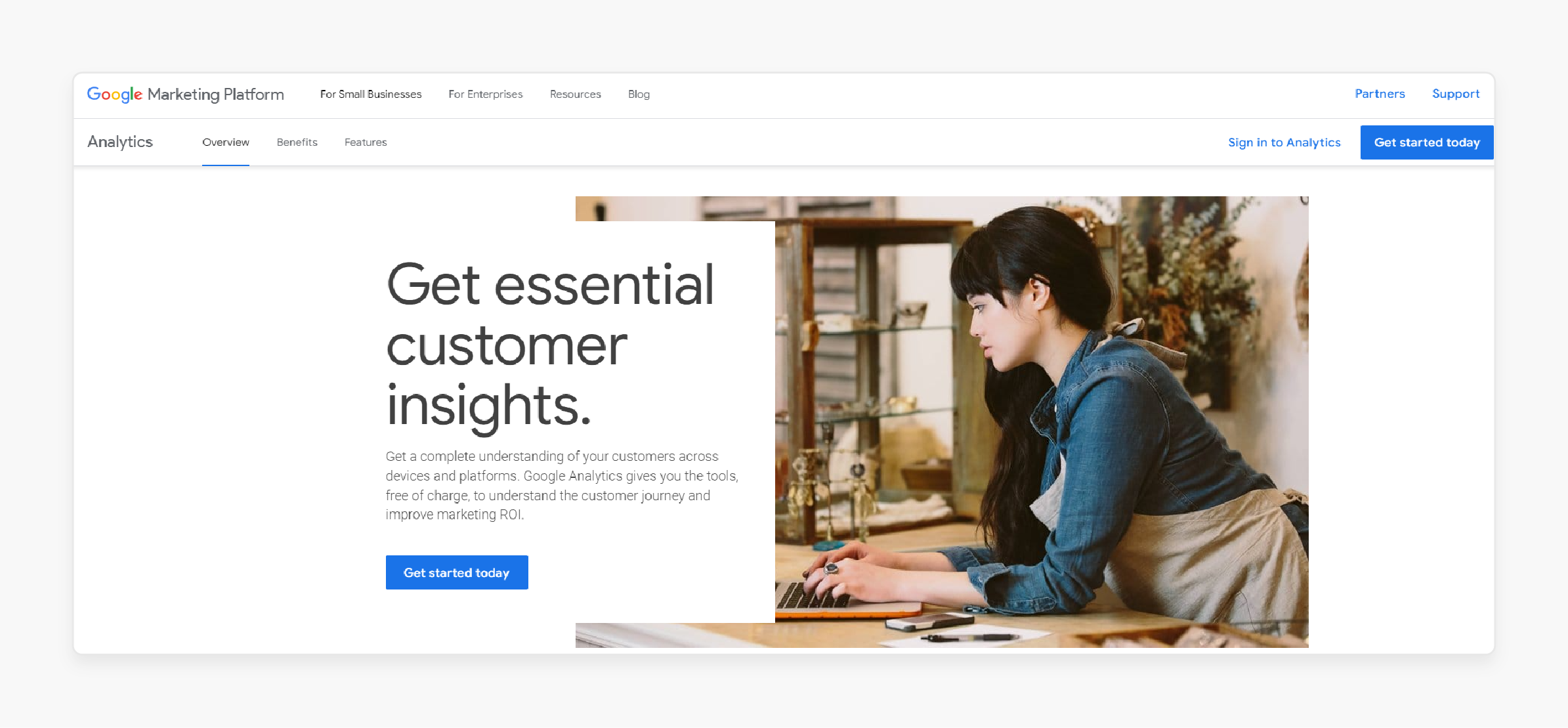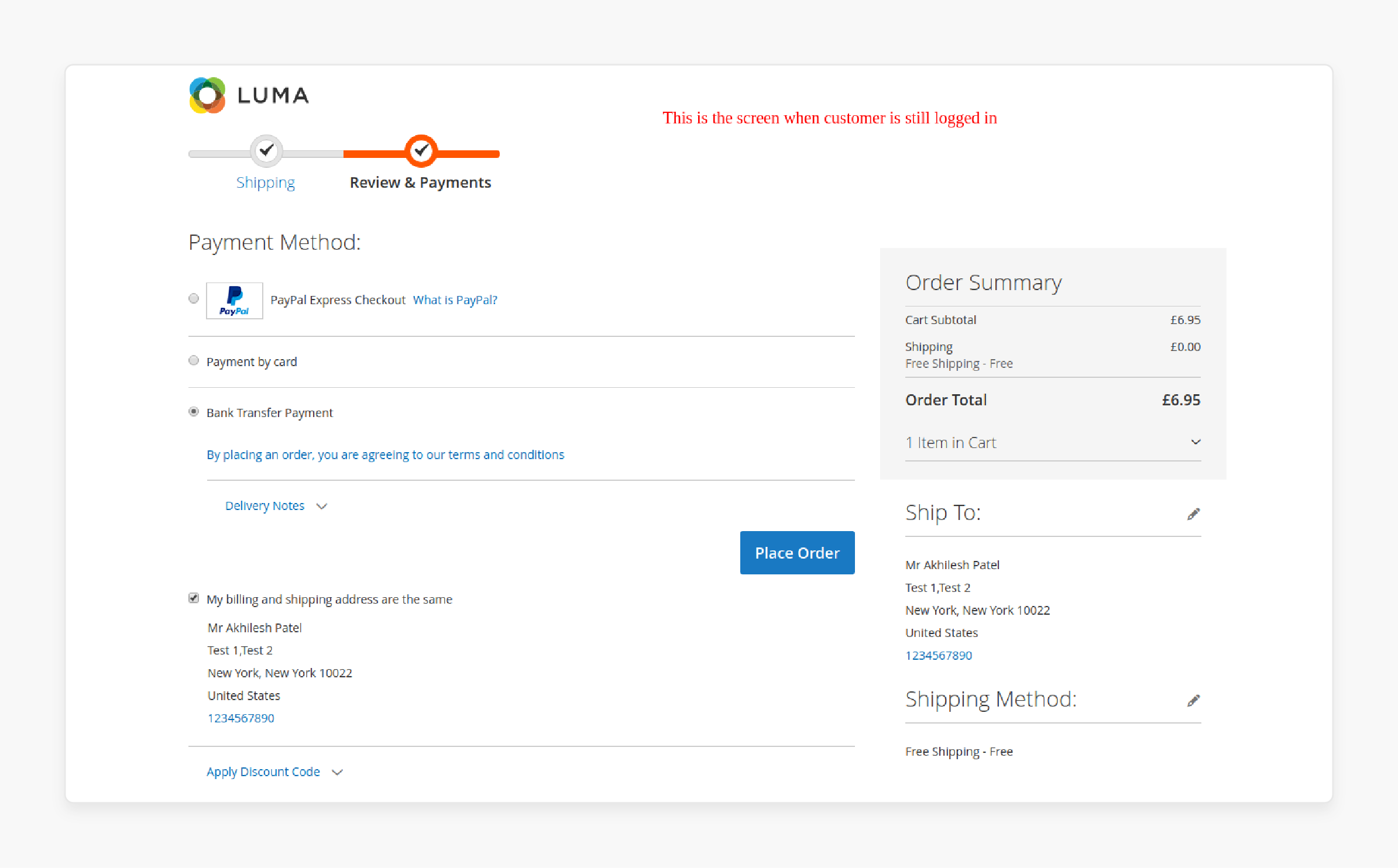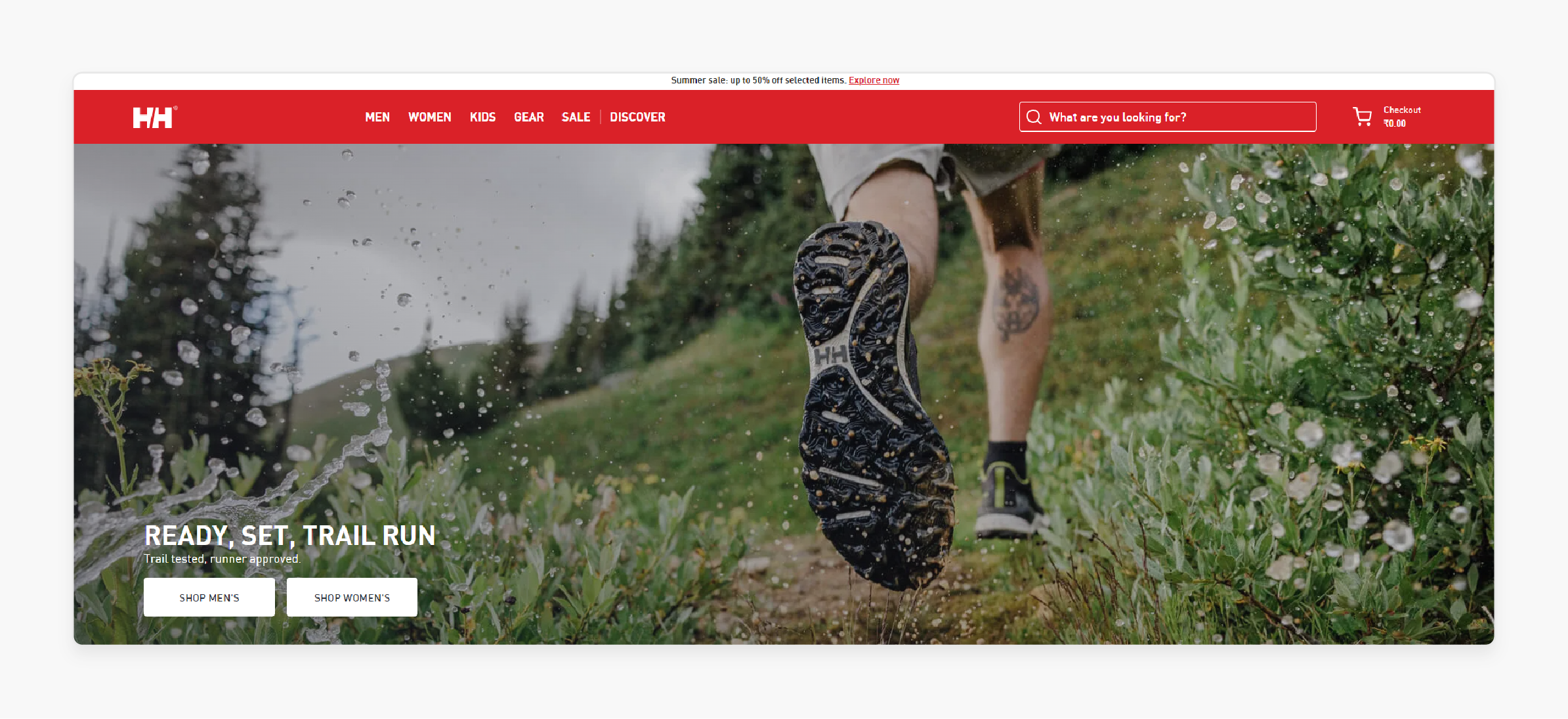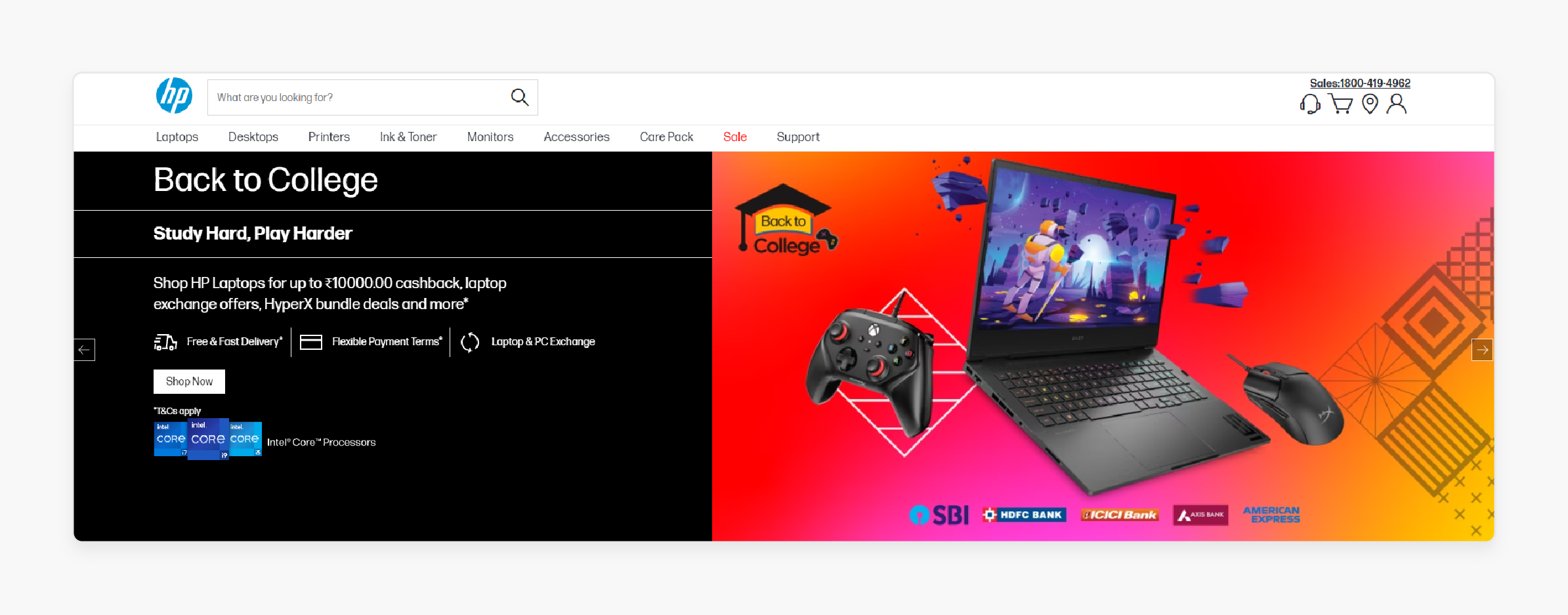
Magento Store Development: Advanced Techniques and Steps to Plan
Want to transform your eCommerce experience with a customized Magento store? Magento store development helps create, design, and manage an online store tailored to your business needs.
In this article, we will explore how to plan and the advanced techniques of Magento 2 store development.
Key Takeaways
-
Understand the essentials of Magento Store Development.
-
Explore the steps to plan and design your Magento store.
-
Identify the right Magento edition for your business.
-
Learn about advanced techniques like PWA and personalization.
-
See how successful businesses use Magento to enhance their stores.
What is Magento Store Development?
Magento store development is a comprehensive solution for creating, designing, and managing an online ecommerce store using the Magento platform.
The process includes customizing the storefront and backend to meet business needs. It ensures scalability for growth and optimization for SEO.
The Magento website development process covers:
-
Planning
-
Design
-
Testing
-
Ongoing maintenance
Magento's flexibility allows businesses to create unique shopping experiences. It helps efficiently manage their store and expand globally.
How to Plan Your Magento Store Development?
1. Define Your Business Goals and Objectives
-
Clearly outline the goals you want to achieve with your Magento 2 store. It could include:
-
Increasing online sales
-
Expanding your customer base
-
Enhancing brand visibility
-
-
Break down your goals into specific, measurable objectives, such as:
-
Achieving a certain percentage increase in sales
-
Improving customer retention rates
-
Entering new markets
-
2. Identify Your Target Audience
-
Conduct market research using tools like:
1. Surveys
2. Focus groups
3. Analytics
-
It helps understand your potential customers' needs, preferences, and behaviors.
-
Develop detailed buyer personas of your ideal customers, including:
1. Demographic information
2. Shopping habits
3. Pain points
-
It will guide your store’s design and marketing efforts.
3. Choose the Right Magento Edition
-
Magento open source is suitable for small to medium-sized businesses with basic eCommerce needs. It is free to use but may require more customization and development.
-
Magento commerce is ideal for larger businesses with complex requirements. It offers:
1. Advanced features
2. Dedicated Magento support
3. Scalability
-
It also comes with licensing costs.
4. Plan Your Store’s Design and User Experience
-
Create visual representations of your store’s layout and design. These include wireframes and mockups. It helps in planning the user journey and identifying the placement of key elements.
-
Ensure that your UX design is intuitive and easy to navigate. Prioritize a mobile-responsive design to cater to the growing number of mobile shoppers.
5. Determine Key Features and Functionalities
-
List out the essential features of your store, such as:
2. Search functionality
3. Secure checkout
4. Customer accounts
-
Consider additional functionalities that can enhance user experience and operational efficiency. These include:
1. Advanced analytics
3. Customer relationship management (CRM) systems
6. Select Extensions and Integrations
-
Identify and choose third-party extensions that add necessary functionalities to your store. Common extensions include those for:
2. Shipping
3. SEO
-
Plan for integrations with your existing business systems, such as:
1. ERP
2. CRM
3. Accounting software
-
It ensures smooth operations.
7. Plan for SEO and Content Strategy
-
Develop an SEO strategy that includes:
1. Keyword research
2. On-page SEO
3. Technical SEO
4. Link-building
-
It helps improve your store’s visibility on search engines.
-
Create a content calendar that includes:
1. Product descriptions
2. Blog posts
3. Other engaging content
-
Ensure that your content is optimized for SEO and appeals to your target audience.
8. Set a Budget and Timeline
-
Calculate the total cost of developing your Magento store, including:
1. Design
2. Development
3. Extensions
4. Integrations
-
Establish a realistic project timeline for each phase of the project, from initial planning to final launch.
9. Assemble Your Development Team
-
Decide whether to hire an in-house team or outsource to a Magento website development company. Consider factors like:
1. Expertise
2. Cost
3. Project complexity
-
Ensure your team has the necessary skills in:
1. Magento development
2. Design
3. SEO
4. Project management
10. Plan for Testing and Quality Assurance
-
Schedule multiple testing phases, including:
1. Functional testing
2. Performance testing
3. User acceptance testing
-
It helps identify and fix issues.
-
Plan for continuous quality assurance. It helps maintain your store’s performance and security after launch.
11. Prepare for Launch and Marketing
-
Develop a detailed launch plan that includes:
1. Final testing
2. Content uploads
3. Setting up analytics tools
-
Plan marketing activities such as:
2. Social media campaigns
3. Pay-per-click (PPC) advertising
-
It drives traffic to your new store.
Advanced Magento Store Development Techniques
1. Utilize Progressive Web Applications (PWA)
-
Implement PWA to provide a fast, reliable, and engaging user experience across all devices. PWAs combine the best of web and mobile apps. It offers features like:
1. Offline access
3. Smooth performance
-
Use Magento's PWA Studio to develop and deploy your PWA. The toolset helps create an app-like experience for your online store. It improves user engagement and conversion rates.
2. Implement Advanced Personalization
-
Leverage AI and machine learning algorithms to offer:
1. Personalized product recommendations
2. Content
3. Promotions
-
These are based on user behavior and preferences.
-
Use advanced customer segmentation to tailor marketing campaigns and product displays to different customer groups. It enhances the shopping experience and boosts sales.
3. Advanced SEO Strategies
-
Use structured data markup to enhance search engine understanding of your content. It results in rich snippets and improved SEO performance.
-
Utilize SEO automation tools and extensions such as:
1. Meta tag creation
2. URL rewrites
3. Sitemap generation
-
It helps maintain high SEO standards.
4. Integrate Advanced Analytics and Reporting

-
Implement Google Analytics Enhanced Ecommerce to gain deeper insights into:
1. User behavior
2. Conversion rates
3. Sales performance
-
Develop custom reports and dashboards using Magento’s reporting capabilities. Integrate with BI tools like Tableau or Power BI for advanced data analysis.
5. Use Headless Commerce Architecture
-
Adopt a headless commerce architecture where the front end and back end are decoupled. It allows for greater flexibility in front-end development. It also enables the use of modern frameworks like React, Angular, or Vue.js.
-
Easily integrate with various touchpoints such as:
1. Mobile apps
2. Social media
3. IoT devices
-
It provides a smooth shopping experience across all channels.
6. Enhance User Experience with Advanced UX/UI Design
-
Continuously conduct A/B testing on different elements of your store. It helps identify what works best for user engagement and conversions.
-
Use dynamic content to personalize the shopping experience. It should be based on user actions and preferences in real-time.
7. Advanced Payment and Checkout Solutions

-
Integrate multiple payment gateways to offer users a variety of payment options. It enhances convenience and reduces cart abandonment.
-
Implement a one-page checkout process. It helps streamline the purchase process and reduce friction for users.
8. Utilize Magento Marketplace Extensions
-
Develop or purchase custom extensions from the Magento Marketplace. It helps add specific functionalities tailored to your business needs.
-
Keep all extensions up-to-date to ensure compatibility and security.
9. Automate Marketing and Customer Relationship Management (CRM)
-
Use email marketing automation tools like Mailchimp or Klaviyo. It automates email marketing campaigns based on user behavior and preferences.
-
Integrate with advanced CRM systems like Salesforce or HubSpot. It helps manage customer interactions and data effectively.
10. Leverage Cloud Hosting Solutions
-
Use Magento Commerce Cloud for a fully managed, high-performance hosting solution.
-
Opt for cloud hosting solutions that offer scalable infrastructure. It helps handle traffic spikes during peak shopping periods.
Examples of Successful Magento Stores Across Industries
1. Fashion and Apparel: Helly Hansen

Helly Hansen is a renowned outdoor clothing brand. It uses Magento to power its global online store.
Key Features:
-
Smooth shopping experience
-
Advanced search functionality
-
Responsive design
Magento’s scalability supports its extensive product catalog and high traffic volumes.
Using Magento’s capabilities, Helly Hansen has enhanced user engagement. It has also streamlined its global operations.
2. Electronics: HP (Hewlett-Packard)

HP, a leading electronics manufacturer, uses Magento for its online store. It sells a wide range of products, including laptops, desktops, and printers.
Key Features:
-
Powerful product configurator
-
Integration with various third-party services
-
Advanced caching and CDN integration
Magento’s flexibility has enabled HP to provide a high-quality shopping experience. It efficiently manages its large inventory.
3. Food and Beverage: Nespresso

Nespresso, known for its premium coffee products, utilizes Magento for its eCommerce operations.
Key Features:
-
Personalized product recommendations
-
Subscription services
-
Streamlined checkout process
-
Loyalty program integrated with Magento
Magento has helped Nespresso create a tailored shopping experience. It enhances customer loyalty and drives repeat purchases.
4. Health and Beauty: Sigma Beauty

Sigma Beauty, a popular cosmetics brand, uses Magento to run its online store.
Key Features:
-
Advanced product filters
-
User-generated content integration
-
Magento’s marketing tools for targeted promotions
With Magento, Sigma Beauty has improved its customer engagement. It has also increased its online sales through effective marketing strategies.
5. Automotive: Land Rover

Land Rover, a luxury automobile manufacturer, employs Magento for its online merchandise store.
Key Features:
-
Detailed product descriptions
-
High-quality images
-
Responsive design
-
Diverse product range
-
Global customer base
Magento’s platform has enabled Land Rover to deliver a premium shopping experience. It also helps align with its brand reputation.
FAQs
1. What are Magento development services?
Magento development services include designing, building, and maintaining an online store using the Magento platform. These services ensure your store is scalable, secure, and optimized for performance. They can be tailored to meet your specific business needs.
2. Why should I choose the Magento platform for my eCommerce store?
The Magento platform offers powerful features, flexibility, and scalability. It makes it ideal for any eCommerce store. It supports various business needs with its extensive customization options and powerful performance. It ensures a unique and efficient shopping experience for your customers.
3. How can a Magento developer improve my store's performance?
A skilled Magento developer can optimize your store’s speed. They can also enhance user experience and implement best practices for SEO. They ensure the site runs smoothly and efficiently, providing a seamless shopping experience. It leads to higher customer satisfaction and better conversion rates.
4. What makes Magento a strong eCommerce platform?
Magento is a strong eCommerce platform due to its comprehensive features, scalability, and flexibility. It supports a wide range of functionalities, including mobile responsiveness and integrated marketing tools. It makes it a powerful choice for businesses looking to grow and succeed online.
Summary
Magento Store Development is a holistic approach to building and managing an eCommerce store. The article outlines several points, including:
-
Customize your Magento ecommerce website to meet specific business needs.
-
Implement mobile-friendly designs and powerful security measures.
-
Plan effectively with steps including market research and goal setting.
-
Utilize advanced techniques like PWA and AI-driven personalization.
Ready to elevate your online store with expert Magento development? Explore managed Magento hosting to boost your Magento performance.










